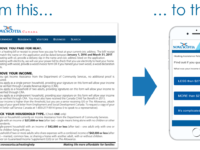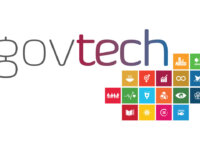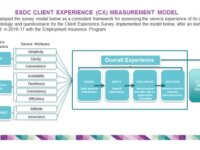The GovTech Lab is a public sector team focused on encouraging the creation and use of innovative solutions for the government. The GovTech Lab helps the public sector identify challenges that can be solved with emerging technologies, engages startups and SMEs, creating innovative solutions and accelerating startups in #GovTech and #TechForGood space.
Innovation Tag: Digital and Technology Transformation
Case Study
Putting Users First: An Innovative Approach to the Modernization of the Heating Assistance Rebate…

The Heating Assistance Rebate Program (HARP) helps over 42,000 low income Nova Scotians with the high cost of heating their homes in the winter. In 2016 Service Nova Scotia used an innovative approach to modernize HARP from a paper-based application to an online system to improve user experience and government processes. The modernization of this program was uniquely user-driven with significant user-testing leading the transition process and continuous user-testing for ongoing improvement.
The Australian government is transforming employment services to improve how the system works for job seekers, employers and the community.
Transformational change requires genuine consultation to capture the diversity of views of stakeholders affected by changes, identifying pain points, testing ideas and laying the groundwork for sustainable policy reform.
A citizen centric approach helps to understand the real-world impact, leading to better outcomes and greater acceptance in the community.
GovTech is a Portuguese public competition that rewards innovative products and services provided by Startups and addressing at least one of the 17 Sustainable Development Goals (SDGs).
It intends to stimulate the national Startup ecosystem, by promoting a sustainable economic growth, fostering innovation and opening new economic opportunities based on the 2030 Agenda.
The use of blockchain in the voting phase opened to the public was one of the perks of this competition
Make.org est une plateforme européenne de mobilisation citoyenne autour d’actions de transformation de la société. Dans ce cadre, Make.org développe une solution digitale de consultation massive, totalement inédite, capable de faire participer autour d’une question simple d’intérêt général, plusieurs milliers de citoyens, dans plusieurs langues, et de restituer les résultats de cette consultation en ligne, de manière quasi instantanée. Cette solution est complétée des…
Converlens emerged from the Australian government’s 2017/18 Business Research and Innovation Initiative (BRII) "Digitally enabled community engagement in policy and programme design" challenge. The BRII challenge linked into OGP Australia’s first National Action Plan. Deploying artificial intelligence (AI) to provide a smart layer of qualitative natural-language processing techniques (NLP), Converlens assists people in government to excel at managing the submissions and communications…
The Client Experience Measurement Survey Model was developed by Employment and Social Development Canada to gather and analyse client feedback to improve service delivery to its clients. Canadians have been able to express their views on government programs and services, which have informed the way programs and services are designed and delivered. The survey allows the tracking of service satisfaction, ease of access, effectiveness of service delivery, and the experience of particular programs…
With a citizen-centric approach and a strong focus on co-creation, SIMPLEX is a simplification and modernization program focused on improving public service efficiency and designed to facilitate the citizens and businesses everyday life, and their interaction with the public administration.
Launched in 2006, it had several editions since then and resulted in the implementation of hundreds of initiatives that cut red tape, reduced context costs and used ICT to deliver better public services.
Office of Legislation has introduced a single national legal information system offering to the public the information on adopted laws, regulations and other legal acts free of charge, including EU and national case law, consolidated texts, and other information with significant impact on the application of national law. In addition to efficient and quick search through all sources of law, users can easily monitor the process of planning and adopting laws and regulations.
Latvia’s E-index is the first national-level initiative helping central government institutions and municipalities to evaluate and recognize their level of digital transformation, foreseen solutions and learn from other institutions. This enables and motivates the development of the e-environment. Within the spirit of positive competition, the common goal is raising awareness of digital transformation, learning about policy and tools, and increasing quality and accessibility of services to…





